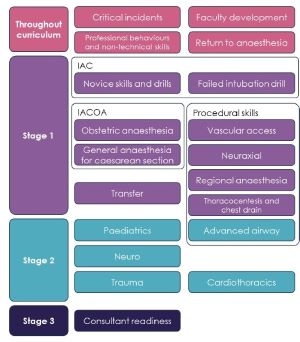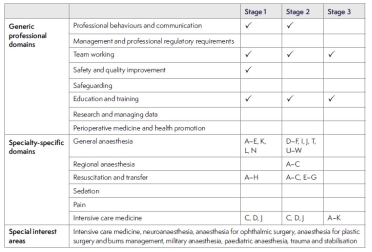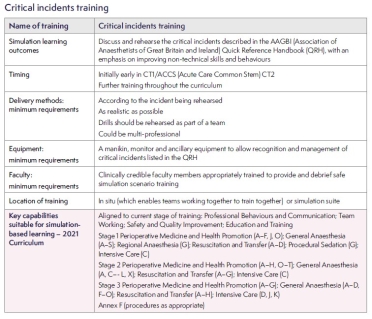Guidance for simulation-based education in anaesthesia training
Simulation-based education can take many forms, from skills practice with part-task trainers or organic models, to interaction with simulated participants, immersive simulation or extended realities. Whilst there is increasing variety and innovation in simulation-based education, simulation is not always used consistently or confidently within anaesthesia training.
This downloadable guide tries to address that. It is suitable for anaesthetists in training and their trainers and module or programme leads alike. You can use it to inform and improve the development of simulation-based education by mapping training to recommended modules. Or, you can use this to see how simulation-based education can help you achieve the key capabilities set out in the curriculum.
These screenshots give you a flavour of the guide. Download it at the link below.

Simulation-based education curriculum map

Curriculum domains that refer to simulation

Example modules for simulation-based education
This document was developed by former RCoA Simulation Fellows Drs Steffan Glaze and Charindri Wariyapola, and by Drs Ed Mellanby and Cristina Diaz-Navarro, simulation leads in Scotland and Wales, respectively.
We welcome feedback. Tell us how you are using this document or how we can continue to improve this and our other simulation support. Email us at simulation@rcoa.ac.uk with your suggestions.
